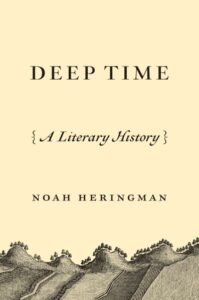 When I first heard that an academic discipline was emerging called the scientific humanities, I became quite excited indeed. With my undergraduate education being in literature and religion – particularly the respective histories thereof – I was delighted by the thought that interest was increasing in the study of how scientific discoveries have been reflected in the literature contemporary to them. Alas, the freshly-kindled flame of my excitement was soon extinguished as I learned that, while there are scholars interested in studying reflections of science in literature, the scientific humanities are not the banner under which they are gathering (and if you’re wondering, the medical humanities don’t seem to be such as that name would imply either).
When I first heard that an academic discipline was emerging called the scientific humanities, I became quite excited indeed. With my undergraduate education being in literature and religion – particularly the respective histories thereof – I was delighted by the thought that interest was increasing in the study of how scientific discoveries have been reflected in the literature contemporary to them. Alas, the freshly-kindled flame of my excitement was soon extinguished as I learned that, while there are scholars interested in studying reflections of science in literature, the scientific humanities are not the banner under which they are gathering (and if you’re wondering, the medical humanities don’t seem to be such as that name would imply either).
Turning back, however, to those studying reflections of the sciences in literature, news has recently come my way about a newly published book from Princeton University Press by Prof. Noah Heringman titled Deep Time; A Literary History. Having previously distinguished himself as a scholar working at the intersection of literature (the term “literature” encompassing not only fiction, drama, and verse but also the writings, i.e, literature, of philosophers and naturalists) and natural history by his two previous books Romantic Rocks, Aesthetic Geology, and Sciences of Antiquity: Romantic Antiquarianism, Natural History, and Knowledge Work, with this new book he refines his focus upon the subject of geology – specifically, the idea of deep time.
By “examining stories about the deep past by visionary thinkers ranging from William Blake to Charles Darwin, [Prof. Heringman] challenges the conventional wisdom that the idea of deep time came forth fully formed from the modern science of geology. Instead, he argues, it has a rich imaginative history.” Seem interesting? It certainly does to me, and I’m very keen to learn what he has discovered about how the idea behind the geological concept of deep time is to be understood in the works of Johann Reinhold Forster, Georg Forster, Georges-Louis Leclerc, Johann Gottfried Herder, and the already mentioned William Blake and Charles Darwin.
If you enjoyed reading this, please consider signing up for The Well-read Naturalist's newsletter. You'll receive a helpful list of recently published reviews, short essays, and notes about books in your e-mail inbox once each fortnight.
